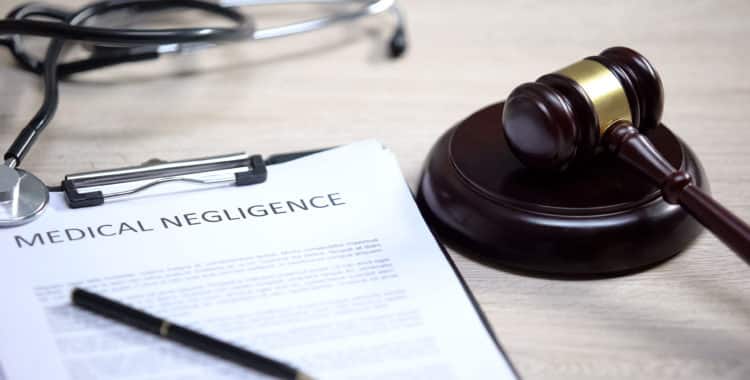How can a Georgia medical malpractice lawyer help me?
Georgia, despite being home to renowned medical centers like Emory University Hospital, Emory St. Joseph’s and Piedmont Atlanta Hospital, is also home to unique laws that complicate the already-complex process of suing for medical malpractice. That’s why having a Georgia medical malpractice attorney is crucial to recover the damages you deserve.
Medical malpractice occurs when your doctor’s care falls outside the standard of care for what a reasonable doctor would do in that situation, and you suffer an injury as a result. Medical malpractice law is highly complex and technical, even in the simplest of circumstances, and Georgia’s filing deadlines and expert affidavit requirements complicate matters even further.
If you or a loved one has suffered an injury as a result of medical malpractice, Conexion Legal can help. We offer free legal advice, and, if needed, we can connect you to an experienced Georgia medical malpractice attorney in our network. Simply call us at 1-800-201-1220, or write to us through WhatsApp to schedule your free consultation.
What is Georgia’s medical malpractice statute of limitations?
Georgia state law states that any legal action for medical malpractice “shall be brought within two years after the date on which an injury or death arising from negligent or wrongful act or omission occurred.” It goes on to state that no action for medical malpractice may be brought more than five years after the date the wrongful act or omission occurred. That is what is known in legal circles as a “statute of repose.” It allows action to be brought in case that the harm brought by the medical error in question does not manifest right away.
The exception to the five-year deadline is if a foreign object — such as a surgical instrument or a sponge — has been left in a patient’s body. In that case, a lawsuit must be brought within one year.
Filing deadlines are crucial. If you attempt to file after the state medical malpractice statute of limitations, your case is almost certain to be dismissed. Experienced Georgia medical malpractice attorneys are well-versed in these deadlines, as well as the nuances within the laws that set them.
What is an “affidavit of expert” and why do I need it to file a medical malpractice suit in Georgia?
To file any medical malpractice lawsuit in Georgia, the plaintiff needs the initial complaint (which sets out allegations against the health care provider) and an “affidavit of expert.” The affidavit of expert is prepared by a qualified medical expert, who offers their sworn opinion as to at least one negligent act committed by the health care provider being sued. It must also include that expert’s factual basis for their opinion.
Failure to file a compliant affidavit is likely to lead to the dismissal of your suit, however, the court could see fit to grant you an opportunity to fix and re-file the affidavit. If a statute of limitations deadline is fast approaching, and you have only recently hired an attorney, you may be granted an extra 45 days to obtain the affidavit.
Retaining a Georgia medical malpractice attorney will alleviate some of the pressure you could face, as they understand what these affidavits must entail, and they will likely have their own network of experts at hand.
The Four D’s of medical malpractice
When it comes to proving medical malpractice, remember the Four D’s:
- Duty: A professional duty owed to the patient. There must first be an established relationship between a healthcare provider and a patient before a duty of care exists. For example, a doctor or nurse eating in a restaurant do not owe a duty of care to other patrons if they suffer an affliction during a meal, unless they volunteer their services.
- Deviation: The standard of care is the type and quality of care that would reasonably be provided by a healthcare provider of the same status as the treating caregiver under the same circumstances. A deviation from that reasonable standard of care — whether by negligence, wrongful act or omission — must be proven.
- Damages: Proof that the healthcare provider’s action or inaction resulted in real damages to the patient, be they physical, emotional, mental or financial.
- Direct Cause: The deviation from the standard of care directly caused injury to the patient. Proving causation can be straightforward, such as a surgeon amputating the wrong limb. Other times, proving causation is complex, technical and difficult, which is why having an attorney with access to a network of local professionals can be a major help.
Each of these four elements must be proven to have been present, based on a preponderance of the evidence, for malpractice to be found. A preponderance of evidence is a lower bar than a criminal trail, during which the prosecution must prove guilt beyond a reasonable doubt. A preponderance of evidence simply means that there is enough evidence to show that the defendant is more likely than not to have been at fault.
If you believe you have suffered an injury due to medical malpractice, Conexion Legal can offer you free legal advice, and connect you to a Georgia medical malpractice attorney in our network. Call us at 1-800-201-1220, or write to us through WhatsApp to schedule your free consultation.

El equipo de redactores de Conexion Legal está compuesto por un grupo de abogados especialistas en casos de accidentes de tránsito, laborales e inmigración para latinos. Cada miembro del equipo cuenta con amplia experiencia en su área de especialización, y todos ellos están comprometidos en ofrecer la mejor información y asesoramiento legal a la comunidad latina.

